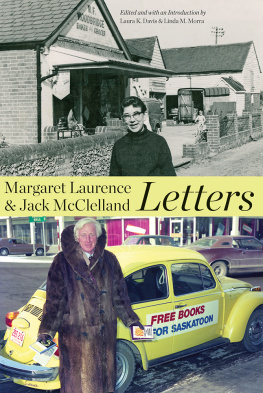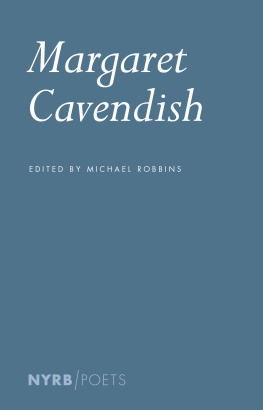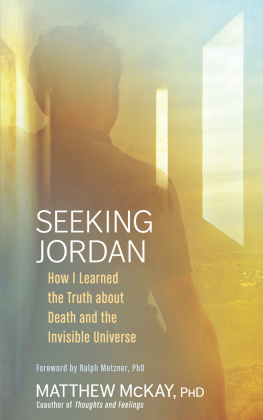Margaret Laurence - This Side Jordan
Here you can read online Margaret Laurence - This Side Jordan full text of the book (entire story) in english for free. Download pdf and epub, get meaning, cover and reviews about this ebook. year: 2009, publisher: McClelland & Stewart, genre: Detective and thriller. Description of the work, (preface) as well as reviews are available. Best literature library LitArk.com created for fans of good reading and offers a wide selection of genres:
Romance novel
Science fiction
Adventure
Detective
Science
History
Home and family
Prose
Art
Politics
Computer
Non-fiction
Religion
Business
Children
Humor
Choose a favorite category and find really read worthwhile books. Enjoy immersion in the world of imagination, feel the emotions of the characters or learn something new for yourself, make an fascinating discovery.

- Book:This Side Jordan
- Author:
- Publisher:McClelland & Stewart
- Genre:
- Year:2009
- Rating:3 / 5
- Favourites:Add to favourites
- Your mark:
- 60
- 1
- 2
- 3
- 4
- 5
This Side Jordan: summary, description and annotation
We offer to read an annotation, description, summary or preface (depends on what the author of the book "This Side Jordan" wrote himself). If you haven't found the necessary information about the book — write in the comments, we will try to find it.
This Side Jordan — read online for free the complete book (whole text) full work
Below is the text of the book, divided by pages. System saving the place of the last page read, allows you to conveniently read the book "This Side Jordan" online for free, without having to search again every time where you left off. Put a bookmark, and you can go to the page where you finished reading at any time.
Font size:
Interval:
Bookmark:
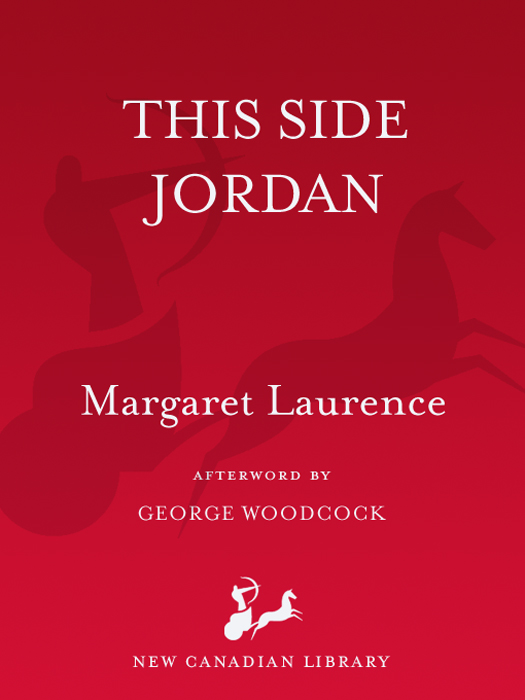
MARGARET LAURENCE was born in Neepawa, Manitoba, in 1926. Upon graduation from Winnipegs United College in 1947, she took a job as a reporter for the Winnipeg Citizen.
From 1950 until 1957 Laurence lived in Africa, the first two years in Somalia, the next five in Ghana, where her husband, a civil engineer, was working. She translated Somali poetry and prose during this time, and began her career as a fiction writer with stories set in Africa.
When Laurence returned to Canada in 1957, she settled in Vancouver, where she devoted herself to fiction with a Ghanaian setting: in her first novel, This Side Jordan, and in her first collection of short fiction, The Tomorrow-Tamer. Her two years in Somalia were the subject of her memoir, The Prophets Camel Bell.
Separating from her husband in 1962, Laurence moved to England, which became her home for a decade, the time she devoted to the creation of five books about the fictional town of Manawaka, patterned after her birthplace, and its people: The Stone Angel, A Jest of God, The Fire-Dwellers, A Bird in the House, and The Diviners.
Laurence settled in Lakefield, Ontario, in 1974. She complemented her fiction with essays, book reviews, and four childrens books. Her many honours include two Governor Generals Awards for Fiction and more than a dozen honorary degrees.
Margaret Laurence died in Lakefield, Ontario, in 1987.
THE NEW CANADIAN LIBRARY
General Editor: David Staines
ADVISORY BOARD
Alice Munro
W.H New
Guy Vanderhaeghe
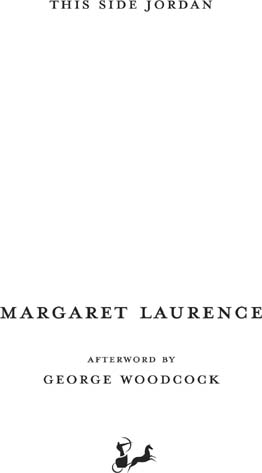
In Memory of my Mother
Margaret Campbell Wemyss
HIGHLIFE
FIRE, FIRE, FIRE Calender and his Maringar Band (Decca).
CLUB GIRL E. T. Mensahs Tempos Band (Decca).
ESTHER ELDER E. T. Mensahs Tempos Band (Decca).
EVERYBODY LIKES SATURDAY NIGHT (Decca).
ALL ANGELS PRAY FOR ME (Decca).
AKAN DRUM PROVERBS AND DIRGES: SOURCES
Whom Does Death Overlook Rattray, R. S., Religion and Art in Ashanti Published by Basel Mission, Kumasi, 1927. Reissued by Oxford University Press, 1954. As We Pass Here, Hate! Rattray, R. S., Religion and Art in Ashanti. Drummers Group Funeral Dirge Nketia, J. H., Funeral Dirges of the Akan People Achimota, 1955. Thou Speeding Bird Meyerowitz, E. L. R., Sacred State of the Akan Faber & Faber, London, 1951. Other Akan proverbs Danquah, J. B., The Akan Doctrine of God, Lutterworth Press, London, 1944.
Until the Lord have given your brethren rest, as he hath given you, and they also have possessed the land which the Lord your God giveth them; then ye shall return unto the land of your possession, and enjoy it, which Moses the Lords servant gave you on this side Jordan toward the sunrising.
(Joshua I:15)
The Day Will Come
Authority Is Never Loved
Flee, Oh Ye Powers Of Darkness
Rise Up, Ghana
(Slogans from African mammy-lorries)
Oh God, there is something above, let it reach me.
(Akan proverb)
T he six boys were playing the Fire Highlife, playing it with a beat urgent as love. And Johnnie Kestoe, who didnt like Africans, was dancing the highlife with an African girl.
Charitys scarlet smile mocked his attempts to rotate his shoulders and wriggle his European hips to the music. Her own fleshy hips and buttocks swayed easily, and her big young breasts, unspoiled by children and only lightly held by her pink blouse, rose and fell as though the music were her breath. Johnnie grinned awkwardly at her, then he jerked his head away.
Fiyah, fiyah, fiyah, fiyah-ma,
Fiyah deah come baby!
Fiyah, fiyah, fiyah, fiyah-ma,
Fiyah deah come ah ah!
I went to see my lovely boy,
Lovely boy I love so well
At one of the tables around the outdoor dance floor, a young European woman watched thoughtfully. At another table an African man watched, then turned away and spat. Both were angry, and with the same person.
Music was the clothing of West African highlife, but rhythm its blood and bone. This music was sophisticated. It was modern. It was new. To hell with the ritual tribal dance, the drums with voices ancient as the forest.
The torn leaves of the palm trees shivered in the wind and the strings of fairy lights glittered like glass beads in the musty courtyard.
The dancers themselves did not analyse the highlife any more than they analysed the force that had brought them all together here, to a nightclub called Weekend In Wyoming, the wealthy and the struggling, the owners of chauffeur-driven Jaguars and the riders of bicycles.
They were bound together, nevertheless, by the music and their need of it. Africa has danced pain and love since the first man was born from its red soil. But the ancient drums could no longer summon the people who danced here. The highlife was their music. For they, too, were modern. They, too, were new.
And yet the old rhythms still beat strongly in this high-life in the centre of Accra, amid the taxi horns, just as a few miles away, in Jamestown or Labadi, they pulsed through the drums while the fetish priestess with ash-smeared cheeks whirled to express the unutterable, and the drummers eyes grew glassy and still, his soul drugged more powerfully than the body could be.
Into the brash contemporary patterns of this Africas fabric were woven symbols old as the sun-king, old as the oldest continent.
Johnnie Kestoe was thin in a sharp, almost metallic way, like a man made of netted wire upon which flesh has been inadequately spread. He had the extreme whiteness of skin that sometimes accompanies dark hair, and although he was not tall, the thrusting energy with which he invariably moved gave him a passable substitute for height.
He held the brown girls hand tightly, their gearfingers meshed to synchronize their separateness. His other hand rested on her shoulder; his fingertips received the tremor of her upstretching muscles, the delicate levering of bones, and he was guided by her through the highlifes gradual frenzy.
The music was languid on the surface. The main beat was lazy and casual. Then the second and third rhythms the racing inner pulse, the staccato heartbeat in the slow flesh.
Oppressive and stifling, the air seemed to be hung with hot unshed rain, and the leaves of the palm trees crackled like breeze-fanned flames. But the African dancers were unaffected by the heat. They moved to the new-old drumcall as though it were their only purpose.
Johnnie was still new enough to want to stare at them. He looked forward to the time when he would be as blas as the other Europeans in the Firm: that attitude marked the men of experience from the green boys.
A fat old mammy, purple-swathed, enormous of buttock, squealed with laughter as she bounced her melon breasts up and down. And the young man with her laughed too, perhaps at himself.
Around the edge of the dance floor, in a huge shuffling circle, African couples danced without touching one another. The rhythms of the highlife seemed to make each body an extension of the other, of every other. To Johnnies mind there was something weird about it, like a sexual experience with more than two. But his arms tightened around the girl. Her moist skin and the smooth-oiled twisting of her body caused in him an itch of curiosity.
Font size:
Interval:
Bookmark:
Similar books «This Side Jordan»
Look at similar books to This Side Jordan. We have selected literature similar in name and meaning in the hope of providing readers with more options to find new, interesting, not yet read works.
Discussion, reviews of the book This Side Jordan and just readers' own opinions. Leave your comments, write what you think about the work, its meaning or the main characters. Specify what exactly you liked and what you didn't like, and why you think so.

